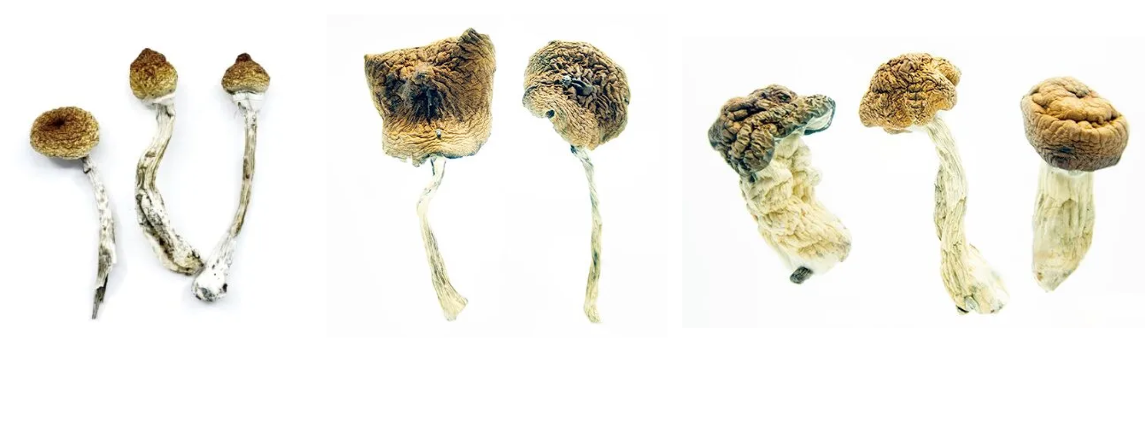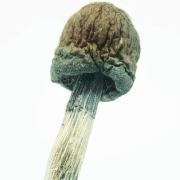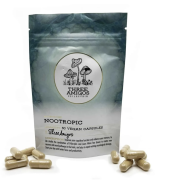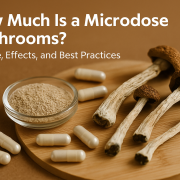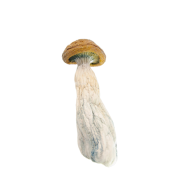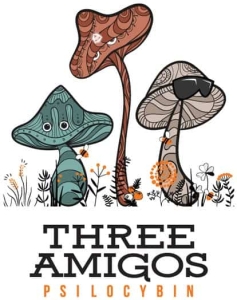Psilocybin for Mental Health: What the Research Says in 2025
The landscape of mental health treatment is experiencing a revolutionary shift, and psilocybin for mental health: what the research says in 2025 reveals unprecedented promise for millions struggling with treatment-resistant conditions.
As we navigate through 2025, breakthrough clinical trials and emerging regulatory frameworks are positioning this psychedelic compound as a potential game-changer in psychiatric medicine, offering hope where traditional treatments have fallen short.
Key Takeaways
- Why it matters (2025): With ~30–40% of patients not helped by standard meds, psilocybin-assisted therapy is showing rapid, durable relief across depression, anxiety, and end-of-life distress—often after 1–2 guided sessions plus integration.
- How it works: By agonizing 5-HT2A receptors, psilocybin boosts BDNF, dendritic growth, and cross-network connectivity while quieting the default mode network, supporting neuroplastic “resets” that can last months.
- Best-supported use so far: Treatment-resistant depression (Phase 3 programs underway) with reports of fast onset (24–48h), 3–6-month durability, and reduced suicidal ideation when paired with structured psychotherapy.
- Other indications in play: Expanding evidence for GAD, social anxiety, end-of-life anxiety, and early work in PTSD populations (veterans, first responders, trauma survivors).
- Microdosing reality check: First controlled trials in 2025 show modest, not dramatic, benefits (mood/creativity); effects appear smaller than anecdotal reports.
- Safety depends on context: In clinical settings with screening, prep, and integration, psilocybin shows a favorable safety profile. Key contraindications include psychosis risk, certain cardiac issues, pregnancy/breastfeeding, and some meds (e.g., MAOIs).
- Set, setting, and support: Outcomes hinge on therapeutic preparation, supervised dosing, and integration; most adverse events arise in unsupervised/recreational use.
- Legal status (2025): U.S. FDA Breakthrough Therapy designations, state programs (e.g., Oregon; activity in CO/CA/WA), city-level decriminalization, and expanding access in Canada, Australia, parts of the EU, but laws vary widely.
- What’s next: Scaling requires trained facilitators, equitable access, long-term safety data, and patient-matching to know who benefits most.
The Current Mental Health Crisis and Psilocybin’s Emergence
The global mental health crisis has reached alarming proportions, with over 970 million people worldwide living with mental health disorders. Traditional antidepressants and anxiolytics, while beneficial for some, leave approximately 30-40% of patients with treatment-resistant conditions. This therapeutic gap has sparked intense scientific interest in psilocybin mushroom therapy as an alternative approach.
Psilocybin, the active compound found in certain mushroom species, works fundamentally differently from conventional psychiatric medications. Rather than requiring daily dosing to maintain neurotransmitter levels, psilocybin appears to create lasting neuroplastic changes through brief, supervised therapeutic sessions.
How Psilocybin Transforms the Brain
Recent neuroimaging studies reveal that psilocybin promotes remarkable neuroplasticity by binding to serotonin 2A receptors in the brain. This interaction triggers a cascade of molecular events that:
- Increases BDNF (brain-derived neurotrophic factor) production
- Promotes dendritic spine growth and synaptic connections
- Temporarily reduces activity in the default mode network
- Enhances neural connectivity between previously disconnected brain regions
Dr. Robin Carhart-Harris’s research at Imperial College London demonstrates that these neurobiological changes can persist for months following a single therapeutic session, explaining why psilocybin’s effects differ dramatically from traditional medications.
Breakthrough Depression Research in 2025
The most compelling evidence for psilocybin’s therapeutic potential comes from depression research. COMPASS Pathways’ Phase 3 clinical trials, expected to conclude in late 2025, are investigating psilocybin for treatment-resistant depression across multiple international sites.
Key Depression Study Findings:
- Rapid onset: Significant improvement often occurs within 24-48 hours
- Sustained effects: Benefits frequently lasting 3-6 months from single sessions
- High remission rates: Some studies showing 50-75% remission rates in treatment-resistant cases
- Reduced suicide ideation: Marked decreases in suicidal thoughts within weeks
Johns Hopkins Medicine’s ongoing research suggests that two psilocybin sessions, combined with psychological support, may be as effective as daily antidepressant use for major depressive disorder, but without the common side effects of sexual dysfunction, weight gain, or emotional numbing.
Anxiety Disorders: Promising New Frontiers
Psilocybin research for anxiety has expanded significantly beyond end-of-life distress studies. Current 2025 investigations include:
Generalized Anxiety Disorder: Early-phase trials at NYU Langone suggest psilocybin therapy may provide lasting anxiety relief by helping patients develop new perspectives on worry patterns and catastrophic thinking.
Social Anxiety: Preliminary research indicates that psilocybin’s ability to temporarily dissolve ego boundaries may help individuals overcome deep-seated social fears and develop greater self-compassion.
End-of-Life Anxiety: Continued research confirms psilocybin’s remarkable ability to reduce existential distress in terminally ill patients, with effects often lasting until death.
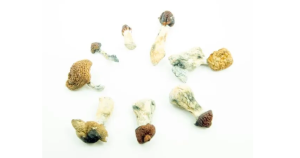
PTSD Treatment: An Evolving Research Area
While MDMA has received more attention for PTSD treatment, psilocybin research is gaining momentum. The compound’s unique ability to promote emotional processing while reducing fear response makes it particularly intriguing for trauma-related conditions.
Current PTSD research focuses on:
- Combat veterans with treatment-resistant PTSD
- Childhood trauma survivors
- First responders with occupational trauma
- Sexual assault survivors
The Microdosing Question: Separating Hype from Science
Microdosing psilocybin, taking sub-perceptual doses every few days, has gained massive popularity, but rigorous scientific evidence remains limited. However, 2025 has brought the first controlled studies examining microdosing for mental health.
The Imperial College London Microdosing Study, launched in early 2025, uses a novel approach comparing genuine psilocybin microdoses with active placebos to overcome expectation bias. Preliminary results suggest modest improvements in mood and creativity, though effects appear less dramatic than anecdotal reports suggest.
Safety Profile and Risk Considerations
Psilocybin therapy demonstrates a remarkably favorable safety profile when administered in controlled clinical settings. However, important considerations include:
Contraindications:
- Personal or family history of psychosis
- Severe cardiovascular disease
- Taking MAOIs or certain psychiatric medications
- Pregnancy or breastfeeding
Potential Adverse Effects:
- Temporary anxiety or challenging experiences during sessions
- Mild headaches or fatigue
- Risk of psychological distress if not properly supported
- Possible triggering of underlying mental health vulnerabilities
The Importance of Set and Setting
Research consistently emphasizes that psilocybin’s therapeutic benefits depend heavily on proper preparation, supportive therapeutic environment, and integration sessions. The majority of adverse events occur in unsupervised, recreational contexts.
Legal and Regulatory Landscape in 2025
The legal status of psilocybin continues evolving rapidly. Several key developments shape the 2025 landscape:
Federal Level: The FDA has granted Breakthrough Therapy Designation to several psilocybin programs, potentially accelerating approval timelines for specific conditions.
State Initiatives: Oregon’s pioneering therapeutic psilocybin program has inspired similar legislation in Colorado, California, and Washington. These state-level programs create regulated frameworks for therapeutic access.
Decriminalization Efforts: Over 30 U.S. cities have decriminalized psilocybin possession, reducing criminal penalties while maintaining therapeutic research focus.
International Progress: Canada, Australia, and several European countries have expanded access programs for serious mental health conditions.
Challenges and Future Directions
Despite promising research, significant challenges remain:
Training and Infrastructure: The mental healthcare system lacks sufficient trained psychedelic therapists. Comprehensive training programs are essential for safe implementation.
Cost and Accessibility: Current therapy protocols are expensive and time-intensive, potentially limiting access to privileged populations.
Long-term Safety Data: While short-term safety appears excellent, long-term effects of repeated psilocybin therapy remain understudied.
Personalized Medicine: Research is needed to identify which patients are most likely to benefit from psilocybin therapy versus traditional treatments.
Looking Ahead: The Promise and Responsibility
Psilocybin for mental health: what the research says in 2025 points toward a cautiously optimistic future. The growing body of evidence suggests this ancient compound, when properly integrated into modern psychiatric care, could help millions of people suffering from treatment-resistant mental health conditions.
However, responsible development remains crucial. The mental health field must avoid the premature enthusiasm that has characterized some alternative treatments while ensuring that promising therapies reach those who need them most.
Conclusion: A New Chapter in Mental Healthcare
The research on psilocybin for mental health in 2025 represents more than scientific advancement, it embodies hope for a more effective, compassionate approach to psychiatric care. As clinical trials continue and regulatory frameworks develop, psilocybin therapy may soon offer evidence-based relief for millions whose suffering has persisted despite existing treatments.
If you’re considering psilocybin mushroom therapy for mental health concerns, consult with qualified healthcare providers familiar with psychedelic medicine. Stay informed about ongoing research and legal developments in your area, and remember that effective mental healthcare often involves multiple approaches tailored to individual needs.
The future of mental health treatment is evolving rapidly, and psilocybin research continues illuminating new pathways toward healing and hope.
FAQs
1) How long do benefits from psilocybin therapy typically last?
In depression trials, many participants improve within 24–48 hours, with effects that can persist 3–6 months (sometimes longer) after one or two supervised sessions plus integration. Durability varies by diagnosis, dose, therapy quality, and patient factors.
2) Is psilocybin therapy safe? What are the main risks?
In screened, clinical settings it’s generally well-tolerated. Expect possible transient anxiety, challenging psychological content, headache, or fatigue. It’s not recommended for those with a personal/family history of psychosis, significant cardiovascular disease, pregnancy/breastfeeding, or on contraindicated meds (e.g., MAOIs). Safety relies on professional screening, supervision, and integration.
3) Does microdosing work for mood or focus?
Early 2025 controlled studies suggest small, measurable improvements in mood/creativity for some, but far less dramatic than popular anecdotes. If considered, do so legally, avoid combining with interacting meds, and track outcomes to see if benefits are meaningful for you.
4) How is psilocybin different from daily antidepressants?
Rather than daily dosing, psilocybin aims to catalyze neuroplastic change via brief, high-support sessions paired with psychotherapy. Many patients report fewer ongoing side effects (e.g., sexual dysfunction, emotional blunting) versus SSRIs, but access and cost can be higher, and it’s not appropriate for everyone.
5) How can someone pursue psilocybin therapy legally in 2025?
Options depend on your location. In some regions (e.g., Oregon), regulated therapeutic psilocybin services exist; elsewhere, access may occur via clinical trials, compassionate/expanded access, or specialist programs (varies by country/province/state). Verify licensed facilities, trained facilitators, medical screening, and integration support, and always follow local laws.

